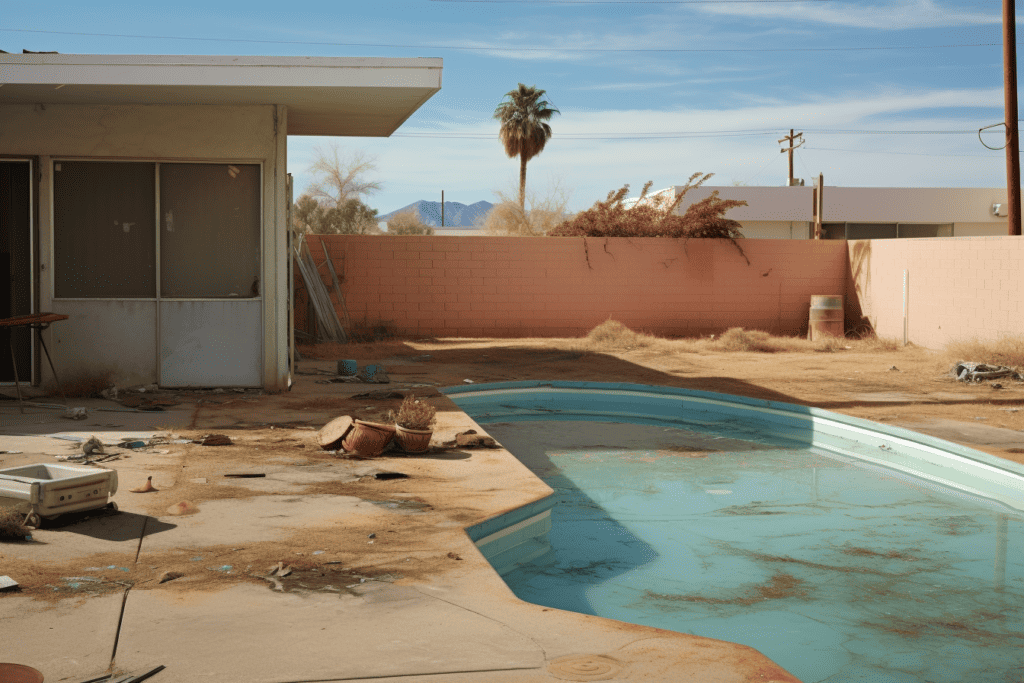Introduction
Swimming pools can evoke images of sun-soaked days and joyful family gatherings. But when it comes to real estate, pools represent both opportunity and challenge.
Swimming pools can be the centerpiece of summer memories, but they also come with considerations every homeowner should be aware of. Whether you're wondering about selling your home or making the most of your pool, Let's dive into the nitty-gritty of owning a home with a pool, this comprehensive guide will clarify things.
A pool is not just a luxury—it's an investment. In places like Florida or California, a pool can bolster your property's value by a whopping 5% to 8%. Yet, in colder regions, prospective buyers might view pools as more of a maintenance challenge than an amenity. Always consider geographical demand before installing.
Fact: Upgrades like heated pools or decorative stonework can further enhance value. But balance cost against potential return if you're thinking of selling.

Maintaining a pristine pool requires effort. Regular skimming, vacuuming, and maintaining chemical balance are givens. Additionally:
Tip: If pending repairs have you pondering a sale, remember: you can sell your house with a pool fast, without the fuss of fixes.
Pool-related accidents are a real concern. Robust fencing (like mesh or glass barriers) and alarms can be lifesavers. Plus, having these features might even give you a break on homeowner's insurance.
Tip: While safety upgrades can be a selling point, if they feel too cumbersome, a cash sale might be your way out.
Inground pools, with design flexibility and a permanent feel, can cost anywhere from $20,000 to $50,000, while above-ground options might set you back $1,500 to $15,000. However, each has its pros and cons, and budgeting doesn't stop at installation.
Pools have their monthly bills. Chemicals, utility costs (especially if heated), and equipment replacements can accumulate. Planning is key.
Remember: Proper budgeting prevents nasty surprises.
While DIY is an option, professionals bring expertise. They ensure water quality, spot potential issues, and can prolong your pool's lifespan.
7. Pool Longevity: A Dive into Lifespans
Material matters. Fiberglass and concrete pools might serve you for 20-30 years, while vinyl pools, popular for above-ground options, average a 7-15 year lifespan.
8. Luxe Dips: Trending Pool Accessories
From energy-efficient LED lights to state-of-the-art robotic cleaners, the pool accessory market is always evolving. Why not make every swim a luxury experience? Saltwater systems that reduce chemical usage to smart systems allowing remote temperature and filter control, innovation abounds. Dive into luxury with the latest trends.
9. Seasonal Wisdom: Opening and Closing Your Pool Right
In colder regions, winterizing prevents freeze damage. Properly draining pipes, balancing chemicals, and using the right pool covers can save heartache and expense.
Conclusion:
A pool can be a delightful addition to any property, but it's essential to be informed. If the challenges seem overwhelming, remember you have options. At any point, if you're considering selling your home as-is, especially if it has a pool, remember that we're here to help. Feel free to contact us with any questions about selling as-is. We're a local "we buy houses" company, always ready to assist you.